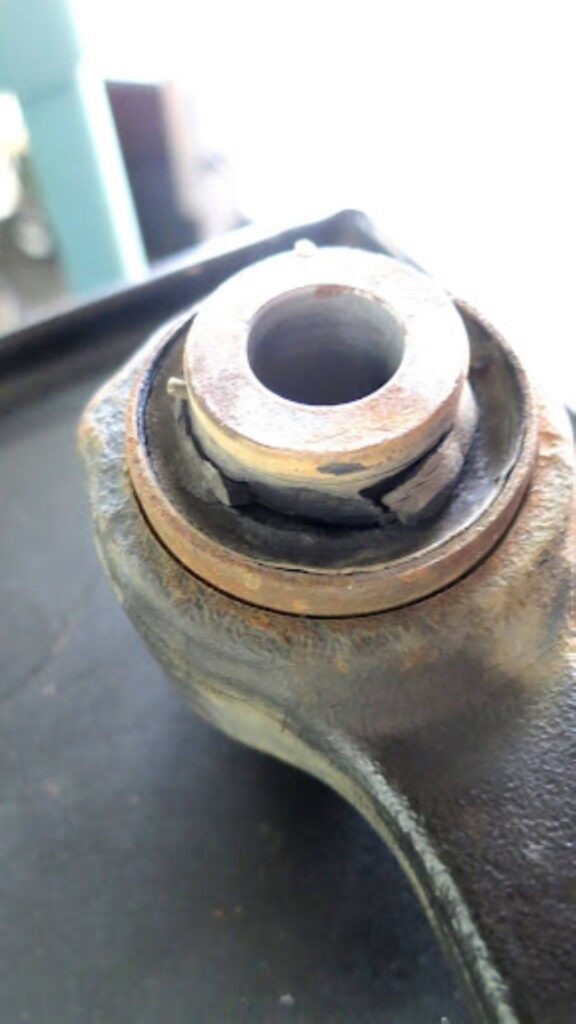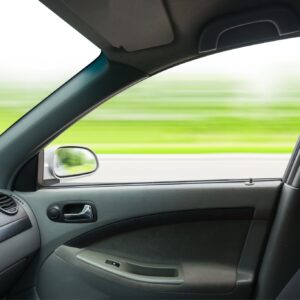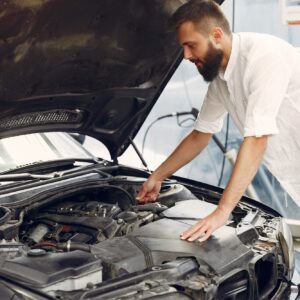Your car makes various sounds when you’re driving it. Most of the noises come from the moving parts of your vehicle. They’re nothing to worry about.
However, some car noises aren’t benign. They indicate that something has gone wrong with your vehicle. What are the strange sounds that should concern you? And what issues produce them?
What Are the Car Noises That You Should Beware Of?
Here are the warning noises you might commonly hear while driving your vehicle:
Droning Noise While Driving
Does your car produce a droning noise? A steady drone that doesn’t go louder, softer, higher, or lower when you turn around a corner? But when you step on the gas, the noise gets louder.
The tires might be making that droning noise while driving. Old or low-quality tires often sound like that.
A front-wheel-drive car that has been driven tens of thousands of miles without a tire rotation may develop a loud tire noise when the tires are rotated due to natural tire wear on the rear tires that will make them noisy when they’re moved to the front.
Also, feathered tires might produce the droning noise you hear while driving your car. They’re tires with treads that show more wear on one side.
So, what can cause uneven tire wear that results in feathered tires? The common reasons are wheel alignment issues, overinflation, underinflation, bad suspension parts, and out-of-balance tires.
A front-wheel-drive car that has been driven tens of thousands of miles without a tire rotation may develop a loud tire noise when the tires are rotated due to natural tire wear on the rear tires that will make them noisy when they’re moved to the front.
– Richard McCuistian, ASE Certified Master Automobile Technician
Humming Noise While Driving
Do you hear a low-pitched humming noise while driving your car? Does the hum get louder when you step on the gas or turn in one direction? And then the volume stays consistent when your vehicle reaches a certain speed? And the sound goes away when you turn in the opposite direction?
A noise that changes when the vehicle is swerved slightly from one side to the other can be a bearing or it can be a tire. Sometimes those noises will sound like they’re in the rear when the issue is actually in the front. For example, a bad left front tire may sound like a bad left rear bearing.
The humming noise might come from the engine, but that noise won’t change while swerving. If you think the engine is causing the noise rather than the tires or bearings, find a safe stretch of empty road and switch the engine off to see if the noise goes away.
If the noise is evident with the engine idling and the hood open, remove the belts and then start the engine to see if the noise goes away. If it does, feel all the pulleys, bearings, etc. to see if any of them are loose or may have a noisy bearing.
High-Pitched Squealing Noise While Driving
When you start the engine for the first time in a while, do you hear a chirping or squealing noise? The sound probably indicates a problem with the serpentine belt because right after you start the engine, the alternator works very hard replacing the battery current you used starting the engine. The belt may stop squealing after a very brief interval in such cases. This is typically a loose belt issue and can happen on serpentine OR V-belts.
A few vehicle models have multiple belts, with one dedicated to the AC. If you only hear the squealing noise when the AC is running, the issue lies with the AC’s serpentine belt.
A cracked, worn, or slipping serpentine belt produces a squealing noise while driving. Damaged belts require immediate replacement. As for slipping belts, adjust the tension with the belt tensioner. But if the belt tensioner shows signs of wear, replace it, too.
Whining Noise While Turning
Many vehicles have hydraulic power steering that enhances your control. However, if you turn the steering wheel until it stops moving, you might hear a whining noise. Check the power steering fluid if you hear this and top up appropriately.
Sometimes the power steering system will develop air even if it’s not low on fluid. There is a GM technical service bulletin about applying vacuum to the power steering pump at the fill neck and then turning the wheels back and forth with the front end raised. See the following video:
Clicking Noise While Turning
Do you hear clicking noises while turning in one direction but not the opposite way? These cyclical clicks happen faster as your vehicle accelerates during the turn. Conversely, they slow down when your car decelerates while turning.
A bad CV axle can cause clicking noises. The axle has a CV axle shaft boot with lubricant, and a tear in the CV axle shaft boot will release grease. The unlubricated moving parts produce the clicking noise while turning in one way.
Clunking or Rattling Noise While Driving
Faulty suspension parts can clunk or rattle while driving over rough road surfaces. They include ball joints, coil springs, and stabilizer links.
Identify and replace the faulty suspension part that makes the clunking or rattling noise ASAP.

Grinding Noise and Squeaking Noise While Driving
Hitting the brakes can create a ruckus. However, grinding and squeaking noises during braking suggest that the brake pad materials are either substandard or worn out.
Some brake pads have metal pieces called squealers. The parts rub against the brake rotor when the brake pad thins out. Their squealing noise warns you to replace the brake pads.
Rumbling Noise While Driving
Idling might produce a rumbling noise that increases in volume at higher speeds. This rumbling noise while driving can come from an exhaust leak.
The exhaust system is made up of multiple connected pieces. Exhaust leaks can appear at one of the system’s gaskets or components. You must find the location of the exhaust leak. Sometimes, you can patch up the leak. In other cases, you might need to replace the bad exhaust part.
Cyclic Speed-Related Noise While Driving
Have you ever heard the noise made by an unbalanced washing machine running in high spin cycle mode? It’s even scarier if you hear that kind of noise while driving. You might have loosened wheel nuts. Pull over immediately and inspect the wheels and tires for issues.
In case of loosened wheel nuts, use a jack to raise your car. Tighten the wheel nuts with a lug wrench.
Any information provided on this Website is for informational purposes only and is not intended to replace consultation with a professional mechanic. The accuracy and timeliness of the information may change from the time of publication.

































